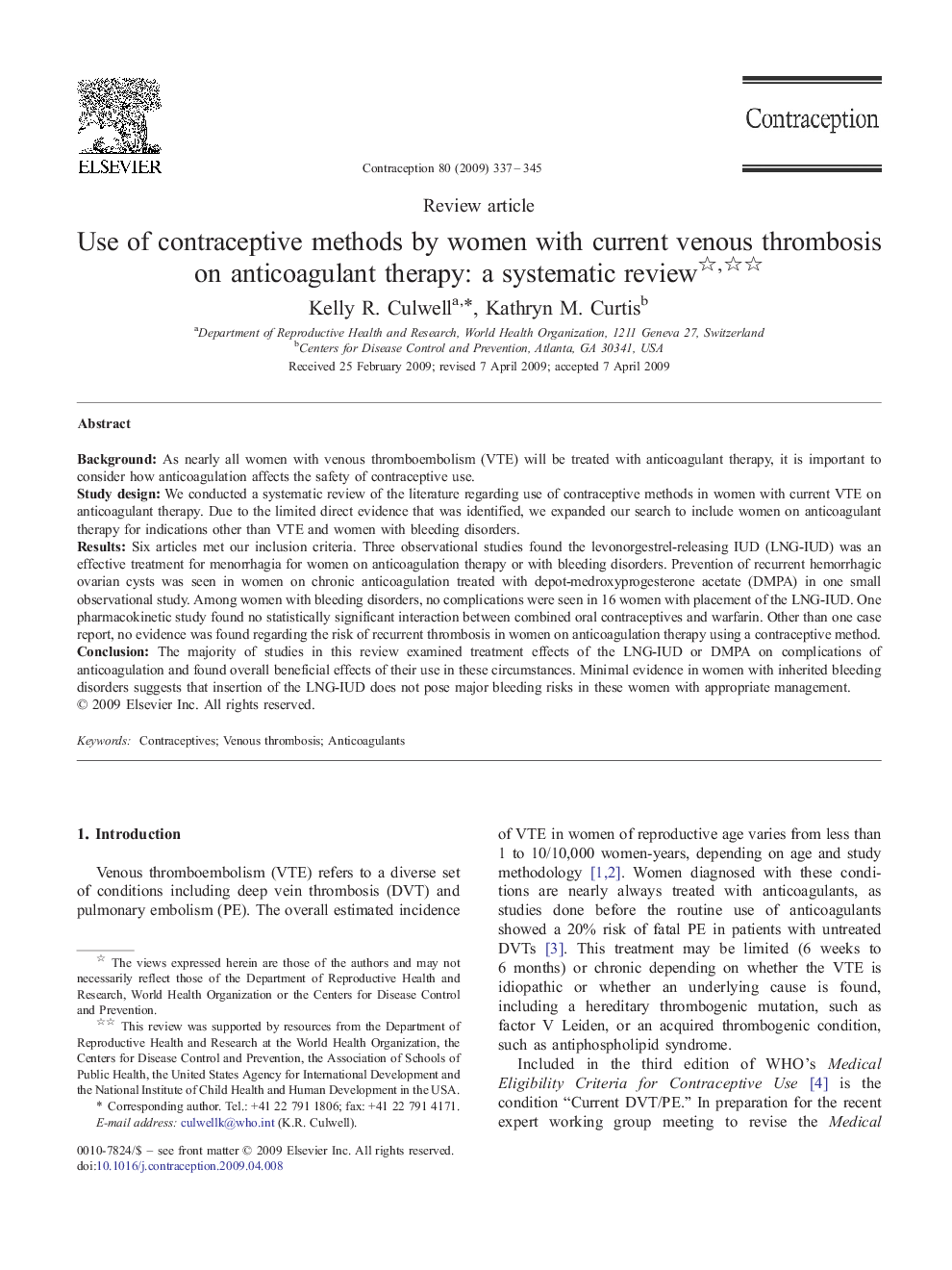| Article ID | Journal | Published Year | Pages | File Type |
|---|---|---|---|---|
| 3915156 | Contraception | 2009 | 9 Pages |
BackgroundAs nearly all women with venous thromboembolism (VTE) will be treated with anticoagulant therapy, it is important to consider how anticoagulation affects the safety of contraceptive use.Study designWe conducted a systematic review of the literature regarding use of contraceptive methods in women with current VTE on anticoagulant therapy. Due to the limited direct evidence that was identified, we expanded our search to include women on anticoagulant therapy for indications other than VTE and women with bleeding disorders.ResultsSix articles met our inclusion criteria. Three observational studies found the levonorgestrel-releasing IUD (LNG-IUD) was an effective treatment for menorrhagia for women on anticoagulation therapy or with bleeding disorders. Prevention of recurrent hemorrhagic ovarian cysts was seen in women on chronic anticoagulation treated with depot-medroxyprogesterone acetate (DMPA) in one small observational study. Among women with bleeding disorders, no complications were seen in 16 women with placement of the LNG-IUD. One pharmacokinetic study found no statistically significant interaction between combined oral contraceptives and warfarin. Other than one case report, no evidence was found regarding the risk of recurrent thrombosis in women on anticoagulation therapy using a contraceptive method.ConclusionThe majority of studies in this review examined treatment effects of the LNG-IUD or DMPA on complications of anticoagulation and found overall beneficial effects of their use in these circumstances. Minimal evidence in women with inherited bleeding disorders suggests that insertion of the LNG-IUD does not pose major bleeding risks in these women with appropriate management.
